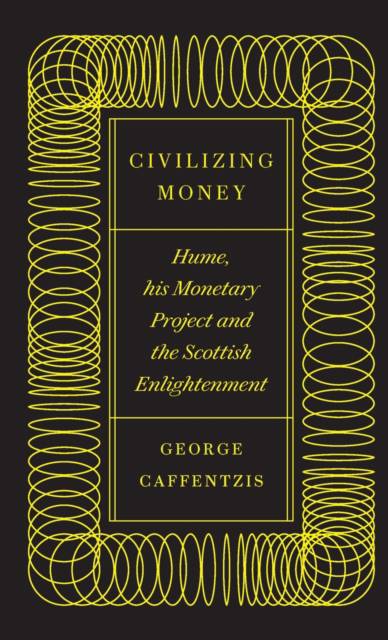
- Retrait gratuit dans votre magasin Club
- 7.000.000 titres dans notre catalogue
- Payer en toute sécurité
- Toujours un magasin près de chez vous
- Retrait gratuit dans votre magasin Club
- 7.000.000 titres dans notre catalogue
- Payer en toute sécurité
- Toujours un magasin près de chez vous
Civilizing Money
Hume, his Monetary Project, and the Scottish Enlightenment
George Caffentzis
Livre relié | Anglais
156,45 €
+ 312 points
Format
Description
Taking the Scottish Enlightenment philosopher David Hume as its subject, this book breaks new ground in focusing its lens on a little-studied aspect of Hume's thinking: his understanding of money. George Caffentzis makes both an intervention in the field of monetary philosophy and into Marxian conceptions of the relation between philosophy and capitalist development. He vividly charts the ways in which Hume's philosophy directly informed the project of 'civilizing' the people of the Scottish Highlands and pacifying the English proletariat in response to the revolts of both groups at the heart of the empire. Built on careful historical and philosophical detective work, Civilizing Money offers a stimulating and radical political reading of the ways in which Hume's fundamental philosophical claims performed concrete political functions.'Capitalist critique and proletarian reasoning fit for our time' - Peter Linebaugh Taking the Scottish Enlightenment philosopher David Hume as its subject, this book breaks new ground in focusing its lens on a little-studied aspect of Hume's thinking: his understanding of money. George Caffentzis makes both an intervention in the field of monetary philosophy and into Marxian conceptions of the relation between philosophy and capitalist development. He vividly charts the ways in which Hume's philosophy directly informed the project of 'civilizing' the people of the Scottish Highlands and pacifying the English proletariat in response to the revolts of both groups at the heart of the empire. Built on careful historical and philosophical detective work, Civilizing Money offers a stimulating and radical political reading of the ways in which Hume's fundamental philosophical claims performed concrete political functions.
Spécifications
Parties prenantes
- Auteur(s) :
- Editeur:
Contenu
- Nombre de pages :
- 304
- Langue:
- Anglais
Caractéristiques
- EAN:
- 9780745341514
- Date de parution :
- 20-07-21
- Format:
- Livre relié
- Format numérique:
- Genaaid
- Dimensions :
- 140 mm x 216 mm
- Poids :
- 517 g







